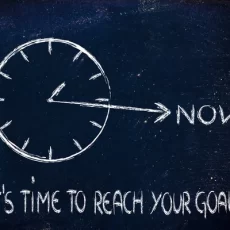Ever caught yourself doodling random words absentmindedly, while you were on the phone or drawing squiggly lines when stuck in a dull meeting? Perhaps you confided in our ruled notebooks growing up or have been documenting your day by keeping a small planner, we have all at some time made journal entries, though we might not have actually intended to do so.
Throughout history, men have wanted to document the activities of their lives or the ideas they have either for themselves or for the benefit of others. A lot of Leonardo da Vinci’s designs that reveal his genius but were never conceived are found in the journals he left behind. ‘Meditations’ by Marcus Aurelius is in fact a collection of self-musings that the Stoic emperor wrote while in prison. Journaling is said to heal the traumatised mind, helps place our thoughts in order and brings us peace.
What is even a stronger argument for journaling is how it can help us withstand stress and improve our immunity. A study conducted by University of Houston tasked cancer patients to write 20-30 minutes a day. They likened the trauma faced by cancer patients to that of war veterans. PTSD, anxiety, depression etc. were experienced by both cancer patients and war vets. It was then discovered that “writing about emotionally difficult events for just 20 to 30 minutes at a time over three or four days increased the immune function. The release offered by writing had a direct impact on the body’s capacity to withstand stress and fight off infection and disease.”
Journaling is a deliberate action. It helps you take a step back and assess what is happening in your life and reflect on what is on your mind. Things that we may be trying to suppress at the cost of our mental peace, can be addressed. It makes us self-aware. What our motivations are, what is holding us back or worrying us, all comes flowing to the paper when we give ourselves a place of no judgement. We get the opportunity to reflect upon the problem in a rational way.
We can write about anything at all – Albert Einstein would journal about his travels across the globe, actress Emma Watson has a different journal each for yoga, acting, the people she meets and the advice she receives from them. A journal doesn’t even have to be a place where you write. If you wish to draw, doodle or paint, even that can help relax your brain and get your thoughts in order. According to author and professor Barbra Oakley, whenever our brain goes into ‘diffused thinking’ mode, we use different parts of our brain where an idea can bounce off other thoughts. This is contrasted with ‘focused mode’ where we can actively engage with only one action or thought. Painting or doodling can help our brain go into a diffused mode of thinking – where a thought we are grappling with can be addressed better when it comes in contact with other ideas or thoughts in our mind.
Whether it is to accomplish a goal, plan your day, track your weight loss journey or just dump whatever is on your mind on paper through written word or art, journaling, in its versatility, has something for everyone.
Here are some tips to help you start out with journaling –
- Start small
Keep your goals small. Remember, don’t worry about the flow of language or how beautiful your cursive is. Keep in mind that this is something you’re doing for yourself as only then can you write unabated from any fear of judgement.
- Time your day
Schedule in some journaling time. Maybe before bedtime or when you wake up. Dedicatedly giving journaling 15-20 minutes of your day, will increase the chance of not giving up just a few days after you start.
- One journal
Start with one journal and expand once you gain the consistency and discipline. Make the process as easy as you can.
A blank page can appear daunting. Afterall, it is something that has intimidated a myriad of highly acclaimed authors, poets and painters alike. Questions like what to write and how to start can restrain us from starting. Centre for Journal Therapy gives a great way to start journaling and address any inertia we may encounter – By answering questions the acronym ‘W.R.I.T.E’ holds:
W – What do you want to address? What is on your mind? What is going on?
R – Reflect on what happened, revisit your feelings and review your day
I – Investigate your thoughts. Just get into the flow and let whatever you feel come out on the paper before you
T – Time yourself. If you feel you struggle with this activity and find it dull, just say to yourself, ‘I will write for 5 minutes’ and then time yourself. It will get the ball rolling.
E – Exit intelligently. Review what you have written and sum up your key takeaways. Starting from a statement such as, ‘As I reflect on what I have written, I feel…’
If you wish to write in a more structured way and want to ease yourself into freely writing about whatever comes to mind, you can try any of these journaling styles that are more controlled:
Gratitude Journal
You can start by writing down 3 things that you are grateful for. It is that simple. It can be anything – from the sun that was shining brightly through the window or the love and support you received from your family. A study from University of Minnesota and the University of Florida, had participants write down a list of positive events that took place during the day and why the events made them happy, at night. It was reported that this activity lowered their self-reported stress levels and gave them a greater sense of calm at night. We can also separate wheat from chaff in terms of what kind of experiences we want during our day. You will not only look to increase these moments of gratitude but will really learn to cherish them instead of just going by your day passively.
Progress Tracker
Whatever your goal may be – weight loss, reading more, becoming more spiritually sound, learning an instrument or becoming more compassionate, you can track your progress. It increases accountability and once you start, not breaking the streak will be a strong motivation to keep going till you reach your goal. You can review any mistakes made and can improve your learning curve.
Dream Journal
Psychologist Kelly Bulkeley is a great advocate for keeping a dream journal for those who want more insight about themselves. He writes that ‘One of the greatest values of a dream journal is the way it grows in power and depth over time. The ever-expanding pool of dreaming experience creates an evolving network of meaningful connections.’ Once we start writing, we can see patterns or observe what during the day was very important to us and how it manifested itself in our subconscious mind.
Your journal is a safe zone. Let your thoughts flow freely and don’t hold back. There is no judgement. Think of journaling as cathartic, whether you have something deep to share or just want to document the mundane happenings of life, you are doing yourself a favour by penning down your thoughts. Journaling is a beautiful time capsule where you write down your history for the future you.





